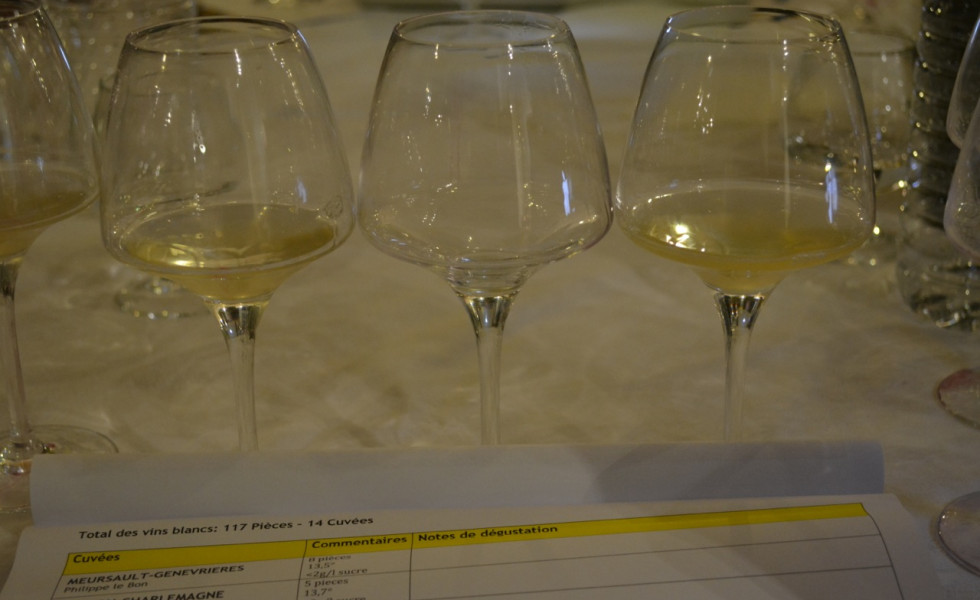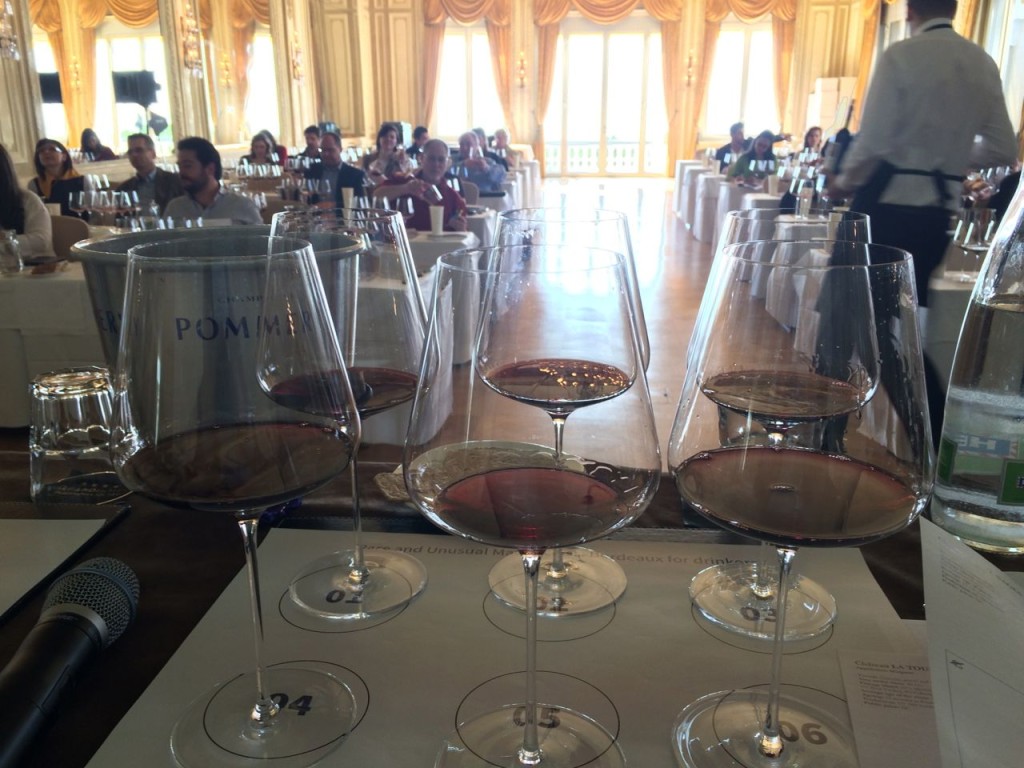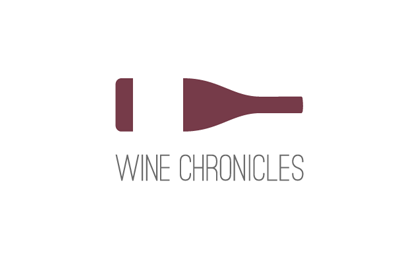Wine glasses matter, but should not cause tunnel vision

By Panos Kakaviatos for wine-chronicles.com
2 September 2015
So, you are meeting with fellow wine friends, tasting through different wines. If you and your fellow oenophiles drink from the same type of glass, then you all have the same vantage point, correct?
So why the hell would you really need to pay $100 for an ultra fancy wine glass?
Or even $25?
Besides, it may be a good time to reject the most widely sold producer, Riedel.
That company is threatening legal action against a humorous blogger known as the Hosemaster of Wine for a post where the blogger pokes fun at the company’s owner Georg Riedel.
Talk about poor public relations.
The post is hilarious. It is a fake interview with company owner Georg Riedel, who basically comes across as a con artist. For example, the fictitious Riedel says this about the stemless “O” series (which I like, by the way): “For years we made fun of people who held their wine glasses by the bowl. Now I have everyone doing that and thinking it’s cool and trendy and making do with less. Idiots!”
Satire, folks.
As if a single blogger will bring sales of Riedel to a halt…
Yet again, why should you spend your hard earned extra cash on all sorts of stemware, some costing triple-digit sums per glass, when that money could go to the wine itself?
Well, I used to be a doubting Thomas.
But I got suckered into the glorious packaging. I fell for the alluring and sexy look and feel of stemware. Riedel, of course. Yes, lead crystal glasses, with large bowls, to impress my friends: “Hey, look fellas, I’ve got this humongous wine glass that’s almost as big as the bottle itself. Isn’t that great?” I fancied myself as Robert Parker, a massive glass in hand, giving a massive score to a massive wine.

If I remember correctly, these are “all purpose” Zaltos. Great stemware: light and elegant and thin glass to bring maximum contact of wine to the palate.
But let’s be serious. Shape matters. So does the thinness of its rim. And size, too.
When I visited the (also) massive Bordeaux-based wine exhibit called Vinexpo 2015 earlier this summer, I attended a demonstration by the Riedel company. And I must say, that the different experiences I had tasting the same wine from different glasses proved amazing, as you can see in the video below.
Certain types of glasses bring out aromatics and flavors better for certain types of wines, as you can see in the video from the Vinexpo Riedel stand.
So hats off to Riedel for that demonstration.
Indeed, you don’t have to compare tasting a wine from a coffee mug and a wine glass to tell the difference, as one wine specialist suggests that you do in this link. Readers of this blog (I hope) appreciate nuances in their wines better with more appropriate stemware.
Rather than making comparisons between coffee mugs and wine glasses, why not bring up Champagne? Most people know that coupes basically dissipate aromatics (and bubbles) faster. Flutes are better. But more serious vintage Champagne screams for Burgundy glasses, which bring out aromas better.
Ok, see how geeky wine glasses can make us? To the point where marketing efforts by Riedel entice us to buy glasses that are overkill (or not really needed for every single type of wine one may have).
But Riedel proposes excellent choices for serious and passionate winelovers. No doubt.
My favorite wine glass company today? Not Riedel, but Zalto.
See the video below, for a short summary as to why.
Zalto stemware – which I first discovered thanks to fellow Washington D.C. wino Kevin Shin – is more elegant and seems to have thinner glass, bringing the wine’s texture closer to your palate and making aromas seem more evident. It is certainly lighter, making the tasting (and drinking) experience more comfortable. Its large base balances the large bowl, but it never comes across as massive.
For all this delicacy, Zalto is apparently dishwasher safe, but I have not dared to try … Riedel more often than not seems stuck in the 1980s, in terms of style, although I still have many Riedel glasses and do like them. By comparison, Zaltos are more subtle – and that’s what I like about them. Just like my favorite wines.
Finally, dear reader, there is no use getting too obsessive about wine glasses. Don’t look down on drinkers who use inferior stemware, for example. If they enjoy their glasses, so much the better.
But stemware matters and serious (and passionate) wine lovers should try different glasses with their wines, because the taste experiences vary according to the glasses used. And although that may be a bit geeky, you have to admit that you have an inner wine geek.
Don’t you?
 Wine Chronicles
Wine Chronicles
Share This